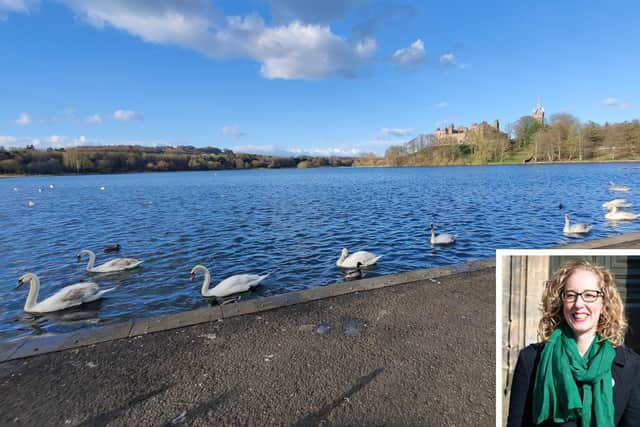Meeting on Monday to discuss Linlithgow Loch pollution
and live on Freeview channel 276
It is under threat of losing its Site of Special Scientific Interest status (SSSI), due to concerns over water quality and biodiversity.
Last September, MSP Lorna Slater staged a public meeting in the Burgh Halls to discuss the loch’s future and details of a previously unpublished report by the Centre for Ecology and Hydrology into the water quality.
Advertisement
Hide AdAdvertisement
Hide AdLorna is hosting another meeting in the Burgh Halls on Monday, amid news from Historic Environment Scotland that, after five years, it is reconvening the Linlithgow Loch Strategic Management Group.


The management group chairman, Craig Mearns, will be attending the meeting, which will be held from 6.30pm to 8pm in the Provost Lawrie Hall. All interested parties are welcome to attend.
Lorna said: “I was relieved to hear that the management group has reconvened after such a long delay.
“Linlithgow residents have been waiting too long for real action to address the loch’s water quality. I know that many are frustrated with the lack of progress.
Advertisement
Hide AdAdvertisement
Hide Ad“We mean to keep the community updated on efforts to address the loch’s nutrient pollution.
“I am looking forward to meeting with Linlithgow residents on Monday, and to ensuring that they are at the heart of decisions.”
The loch was designated as an SSSI in 1984. Since then, cyanobacterial blooms have caused significant damage to its recreation and conservation value and the water quality is a major threat to its SSSI status.